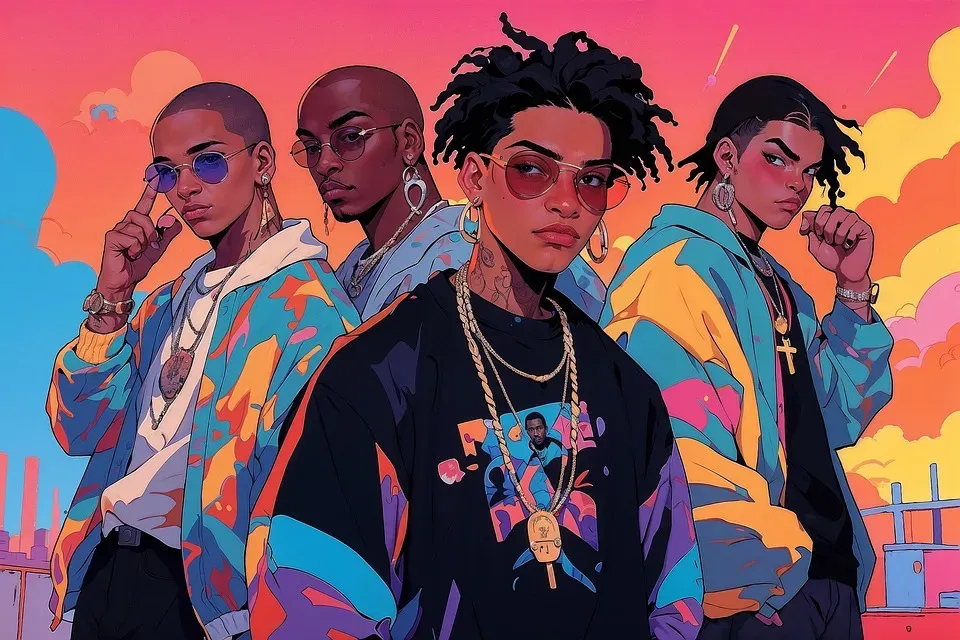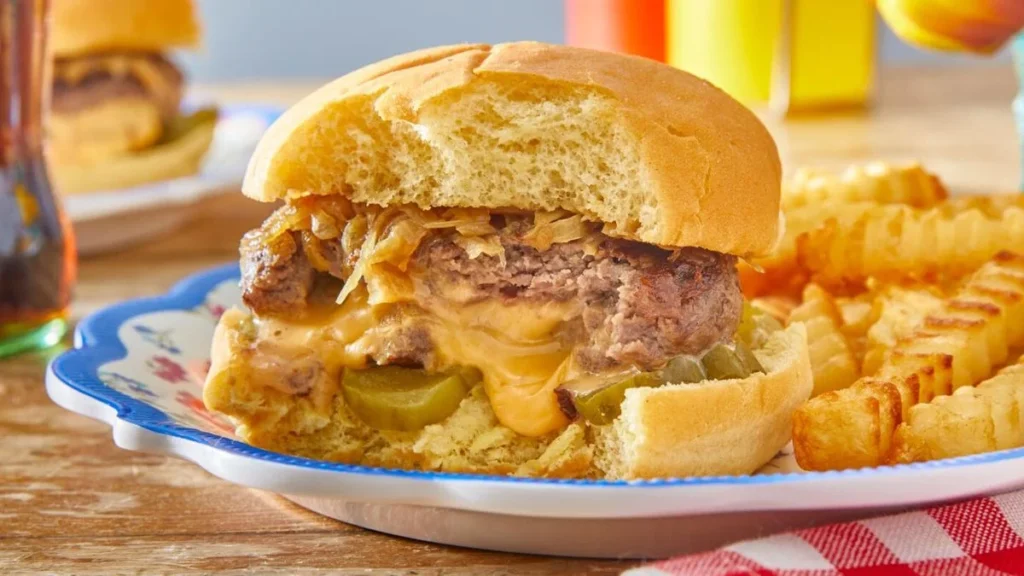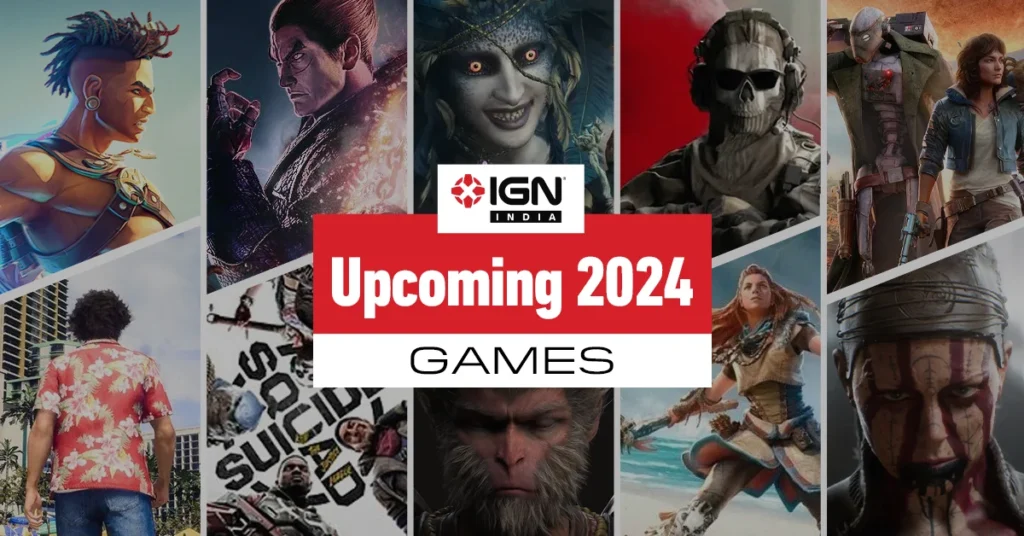AI-generated hip-hop is revolutionizing the music landscape, intertwining advanced technology with creative expression. Through the use of generative AI, artists are able to create tracks that mimic the vocal styles of iconic rappers, sparking debates around authenticity and intellectual property rights. The emergence of deepfake music is both an exciting and controversial advancement, igniting discussions about identity theft in music and the ethics of using someone’s likeness without consent. As digital music continues to evolve, skeptics express concern over this new wave, worried about the implications it has for the industry. With AI music gaining popularity across platforms like YouTube and TikTok, the future of hip-hop appears to be intertwined with the rapid advancements of artificial intelligence.
The rise of computer-generated rap is fostering an intriguing fusion of technology and artistry, often blurring the lines between original work and imitation. As generative algorithms craft new sounds and styles, this phenomenon raises critical questions about the ownership of creative expression and the legal ramifications tied to reproducing popular artists’ voices. This digital renaissance, sometimes referred to as synthetic music or machine-generated hip-hop, highlights the complex relationship between innovation and ethical responsibilities. While many celebrate the ingenuity behind creating unique tracks with familiar vocal signatures, others worry about the risks of misrepresentation and its potential to disrupt the traditional music industry framework. Ultimately, this trend invites fans and critics alike to reflect on what it means to truly ‘create’ in an era where technology can replicate the essence of artists.
The Rise of AI-Generated Hip-Hop
In recent years, the emergence of AI-generated hip-hop has revolutionized the music industry, prompting discussions about authenticity and originality. Generative AI tools have enabled creators to replicate the voices of iconic artists, resulting in tracks that sound strikingly similar to the originals. With just a few clicks, fans can now listen to AI-generated versions of their favorite rappers, blurring the line between creator and imitation. This trend has gained traction on platforms like YouTube, Instagram, and TikTok, where snippets of these AI tracks often go viral, leaving listeners questioning the source.
The rapid proliferation of AI-generated music raises important questions about the future of the hip-hop genre. While some argue that these innovations offer fans an exciting new way to experience music, others express concerns about identity theft in music. Notably, artists like Drake have publicly criticized the use of AI-generated likenesses, considering it an infringement on their artistic identity. This ongoing debate highlights the need for clearer guidelines and potentially new legislation to navigate the complexities of intellectual property rights in the age of AI.
Understanding Generative AI in Music Creation
Generative AI represents a groundbreaking advancement in the field of music creation, allowing artists and non-artists alike to produce unique soundscapes and melodies. Using sophisticated algorithms, these tools analyze vast datasets of existing music to create new compositions, often indistinguishable from those created by human musicians. This technology has democratized music-making, enabling aspiring producers to craft tracks that may have been out of reach without extensive training or resources. However, the question remains: does this technology threaten the integrity of music as an art form?
As generative AI continues to evolve, the music industry must confront the implications of this technology. The blending of human creativity with machine learning raises ethical concerns regarding ownership and authorship. Many creators utilize AI music tools without fully understanding the potential consequences, leading to situations where notable artists’ identities are replicated without permission. This growing trend has sparked a digital music controversy over how AI-generated content fits within existing copyright laws and whether new regulations are needed to protect the rights of original creators.
The Controversies Surrounding AI and Music Copyright
The introduction of AI-generated music has ignited intense debates over copyright and artistic ownership. As generative AI tools become increasingly popular, music labels like Universal Music Group have begun to take a proactive stance against the unauthorized use of artists’ voices. They’ve reached out to streaming platforms to help combat the scraping of content essential for AI-generated music production. This move underscores the urgent need for the industry to re-evaluate its frameworks regarding copyright in the context of advanced AI technologies.
As hobbyist creators proliferate in the realm of AI music production, the question of legality and ethical use becomes even more pressing. Many artists worry about the implications of identity theft in music, particularly when their voices are manipulated without consent. The absence of clear guidelines can lead to confusion over the boundaries of creative expression and intellectual property. While some creators view their work through the lens of fan culture and remixes, others consider it a direct challenge to the original artists’ rights, thus fuelling an ongoing controversial discourse in the intersection of technology and artistry.
The Impact of AI Music Tools on Aspiring Artists
AI music tools have opened new doors for aspiring artists who may lack the resources or connections traditionally necessary for breaking into the music scene. Platforms like TikTok have seen a surge in creators employing these technologies to craft innovative tracks that resonate with audiences. For many, the allure of AI-generated hip-hop lies in the ability to experiment with different styles and genres without being constrained by conventional music production costs or expertise. This democratization of music-making encourages creativity and collaboration, empowering a diverse range of voices in the hip-hop community.
However, the emergence of AI-generated music also raises concerns about the dilution of artistry and originality. As more aspiring artists turn to generative AI tools for inspiration, there’s a risk of oversaturation in the market. The challenge lies in maintaining distinctiveness while navigating a rapidly evolving landscape where anyone can imitate established artists. As the lines between creation and imitation blur, artists must find ways to differentiate their work in a space increasingly populated by AI-generated content.
Navigating Ethical Concerns in AI Music Creation
The rise of AI music generation has ushered in a host of ethical concerns, particularly regarding the unauthorized replication of an artist’s voice and the implications of altering their artistic intent. As music becomes an increasingly digital experience, questions arise about the right to use someone’s likeness for commercial gain. Creators utilizing AI tools may not fully grasp the ramifications of their actions, leading to potential exploitation of artists’ identities without their consent. This situation necessitates a broader conversation about ethics in the creative industries and respect for intellectual property.
Additionally, the potential for generative AI to produce music using the likenesses of deceased artists raises significant moral questions. With no way to seek approval from these artists, the line between tribute and appropriation becomes painfully unclear. It is essential for the industry to develop ethical guidelines that address these complexities and protect the legacies of original artists while allowing innovation to flourish. Engaging in open dialogues about the role of AI in music can help foster a more responsible approach to creativity in the digital age.
AI-Generated Hip-Hop as a Cultural Phenomenon
The emergence of AI-generated hip-hop signifies a shift in the cultural landscape of music production, highlighting the intersection of technology and artistic expression. Artists and fans alike are captivated by the possibilities offered by generative AI, which has the potential to reshape how we define authenticity within the genre. As more tracks created using AI tools gain popularity, they invite reflection on the evolving nature of hip-hop and how technology influences its identity. This blending of human creativity with machine learning posits a new cultural narrative that underscores change and progression in the music industry.
Despite the controversies surrounding AI-generated hip-hop, it undeniably reflects a collective enthusiasm for innovation in music creation. Fans revel in the prospect of discovering new sounds reminiscent of their favorite artists, creating a unique blend of nostalgia and futurism. However, this cultural phenomenon also prompts critical discussions about ownership, legacy, and respect for the art form itself. As the hip-hop community navigates this new territory, it must reconcile the excitement of technological advances with the preservation of its foundational values of originality and authenticity.
The Future of AI in the Music Industry
Looking ahead, the integration of AI in the music industry is poised to become increasingly sophisticated and influential. As technology advances, we can expect new applications that enhance creativity while posing unique challenges for artists and labels alike. The potential for AI-generated music to mimic acclaimed artists raises serious questions about how we regulate its use and establish legal protections for musicians. The industry’s commitment to adapting and evolving will be vital in determining how artists can harness these tools without compromising their rights.
Moreover, embracing generative AI could serve as a catalyst for innovation within the music industry. By redefining existing frameworks and embracing new technologies, the industry may unlock unprecedented collaborative opportunities between artists and AI. It could lead to innovative music production methods and fresh approaches to songwriting, ultimately pushing the boundaries of musical expression. Future discussions must emphasize the importance of balancing technological advancement with respect for artists, ensuring that the music industry remains a space for creativity and authenticity.
Public Reception of AI-Created Music
The public’s reception of AI-generated music has been mixed, with some listeners embracing the novelty and creativity it offers. Fans are captivated by the ability to hear their favorite artists perform songs they may never have recorded, leading to a growing phenomenon on social media platforms. However, the rapid proliferation of these tracks has also ignited concerns among dedicated listeners and artists about the ethical implications of AI-generated music. Content creators face scrutiny over their work while battling perceptions that they are simply capitalizing on the fame of established musicians.
As the music community grapples with these changes, understanding public sentiment toward AI-generated tracks will be crucial. Artists examining their relationship with technology must find a way to engage with their audience authentically while honoring the traditions of hip-hop. If the music industry can successfully navigate this terrain, it can cultivate a healthy integration of AI in music production that echoes both innovation and respect for artistic integrity.
Embracing Creativity Through AI in Music
AI-generated music represents a frontier of creativity where technology and human ingenuity intersect. As artists experiment with these new tools, they have the potential to create works that stretch the limits of traditional genres while exploring diverse musical landscapes. This fusion of tech and creativity enriches the hip-hop genre, inviting artists to discover fresh sounds and collaborate in ways previously unimaginable. Ultimately, it opens up exciting avenues for musicians to express themselves and connect with their audience.
However, it is vital for artists to approach AI with a critical eye, ensuring they remain grounded in the authenticity that defines hip-hop culture. By balancing technological exploration with respect for individual artistry, musicians can navigate this evolving landscape successfully. As the music world embraces generative AI, a harmonious balance can be struck that celebrates both cutting-edge innovations and the artistic identities of the musicians at its heart.
Frequently Asked Questions
What is AI-generated hip-hop and how does it work?
AI-generated hip-hop refers to music created using artificial intelligence algorithms that mimic the style and vocal characteristics of hip-hop artists. These systems, often utilizing deep learning and generative AI, analyze large datasets of existing hip-hop tracks and artist vocalizations to produce new lyrics and melodies, making it increasingly challenging to discern between original and AI-created music.
Is AI-generated hip-hop considered identity theft in music?
Many consider AI-generated hip-hop a form of identity theft in music when it replicates the voice or style of a specific artist without their consent. This controversy arises as generative AI can craft tracks that sound convincingly like established artists, leading to legal and ethical debates surrounding the ownership and rights over one’s likeness and vocal identity in the digital music landscape.
What are the legal implications of using AI-generated hip-hop?
The legal implications of AI-generated hip-hop remain murky, as current intellectual property laws do not adequately cover the use of generative AI in music. Artists and music labels are raising concerns about copyright infringement and identity theft related to AI music creation, highlighting the need for new regulations to address these emerging issues in the industry.
How is the music industry responding to the rise of AI-generated hip-hop?
The music industry is responding to the rise of AI-generated hip-hop with caution, as some major labels are working to block unauthorized AI music from platforms such as Spotify and Apple Music. These actions include filing copyright complaints and pushing for stricter regulations to protect artists’ rights against the unauthorized use of their voices and music styles in generative AI processes.
Can AI-generated hip-hop be considered a legitimate form of art?
Yes, AI-generated hip-hop can be considered a legitimate form of art, as it pushes the boundaries of creativity and technology. However, the debate about its authenticity and ethical implications continues, particularly concerning the use of artists’ identities without permission, leading to questions about originality and artistic integrity in the evolving landscape of digital music.
Are there risks associated with creating and sharing AI-generated hip-hop?
Creating and sharing AI-generated hip-hop carries various risks, including potential legal challenges regarding copyright infringement and identity theft. Users must be aware of the ethical implications of using another artist’s voice without consent, as well as the possibility of facing takedowns or legal actions from music labels protecting their intellectual property.
What tools are popular for creating AI-generated hip-hop music?
Popular tools for creating AI-generated hip-hop include software like So-Vits-SVC, which allows users to generate vocal tracks using models based on existing artists. These tools leverage generative AI to create new music by replicating artists’ voices, thereby enabling users to experiment with various combinations and styles in the hip-hop genre.
How has social media influenced the popularity of AI-generated hip-hop?
Social media has greatly influenced the popularity of AI-generated hip-hop by providing platforms for sharing and discovering new AI music tracks. Viral content on platforms like TikTok and Instagram often showcases innovative uses of generative AI, drawing attention to the phenomenon and encouraging more users to experiment with AI tools in producing hip-hop music.
What are the ethical concerns surrounding AI-generated hip-hop?
The ethical concerns surrounding AI-generated hip-hop revolve around questions of consent, artistic ownership, and the potential for misrepresentation. The use of generative AI to imitate artists without their permission raises significant issues about identity theft and the integrity of creative expression in the music industry.
| Key Point | Description |
|---|---|
| AI-Generated Tracks | Tracks using artificial intelligence to replicate famous artists’ voices like Eminem, Jay-Z, and Drake are becoming common. |
| Industry Concerns | Celebrities like Drake have expressed frustration, equating AI-generated content to identity theft. |
| Legal Ambiguity | The current legal framework is unclear regarding copyright and identity theft in AI-generated music. |
| User Engagement | Creators like YeezyBeaver experiment with tools like So-Vits-SVC, sparking community interest. |
| Reaction from Labels | Music labels have begun taking down AI-generated content and are pushing for stricter regulations. |
Summary
AI-generated hip-hop is reshaping the music landscape, stirring both excitement and controversy. As musicians and fans navigate this new terrain, the debate surrounding identity, permission, and creative ownership continues to evolve. With legal frameworks still catching up, creators are challenged to balance innovation with ethical considerations. The question remains: can AI truly pay homage, or does it cross the line into theft?



